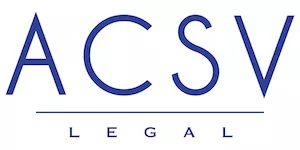- in Africa
- within Government and Public Sector topic(s)
- with readers working within the Retail & Leisure industries
1. Is there a legal definition of a franchise and, if so, what is it?
The definition of a "franchise" is covered in Article 284 of the Commercial Law 2005 ("the Commercial Law"). This defines a franchise as a commercial activity whereby a franchisor authorizes and requires a franchisee to conduct the purchase and sale of goods or provision of services on its behalf. These transactions must follow the conditions below:
a) The purchase and sale of goods or the provision of services must be conducted under the method of business organization specified by the franchisor. It must also be associated with the trademark, trade name, business know-how, business mission statements, business logo and advertising of the franchisor; and
b) The franchisor has the right to control and offer assistance to the franchisee in the conduct of the business.
2. Are there any requirements that must be met prior to the offer and/or sale of a franchise? If so, please describe and include any potential consequences for failing to comply.
Before conducting franchising activities, both franchisors and franchisees must meet the following conditions:
a) The franchisor's business system (to be franchised) must have been in operation for at least one year as per Article 5 of Decree 35/2006/ND-CP (as amended by Article 8 of Decree 08/2018/ND-CP) ("Decree 35").
A violation of this provision shall be subject to (i) a monetary fine from VND 10,000,000 to VND 20,000,000, and (ii) a remedial measure requiring the return of any illegal profits as per Articles 4, 75.3 and 75.6 of Decree 98/2020/ND-CP ("Decree 98").
b) Foreign franchisors must register their franchising activities with the Ministry of Industry and Trade ("MOIT") following Article 17 of Decree 35.
A breach of this requirement shall be subject to the same monetary fines and remedial measures mentioned above.
c) The franchisor must disclose to the franchisee information regarding the franchise system. This must include a franchise agreement template and an introductory franchise document as stipulated in Article 8.1 of Decree 35. The franchisee will need to provide any information reasonably required by the franchisor for the franchise activity.
A violation of this condition shall lead to (i) a monetary fine from VND 6,000,000 to VND 10,000,000, and (ii) a remedial measure requiring the return of any illegal profits under Articles 4, 75.2, and 75.6 of Decree 98.
d) The franchisee must fulfill all other relevant requirements applicable to the franchised business, depending on the sector. This includes, but is not limited to, sub-license requirements such as food safety satisfaction, fire protection sub-licenses, etc.
Infringement of these requirements shall be handled according to relevant laws.
3. Are there any registration requirements for franchisors and/or franchisees? If so, please describe them and include any potential consequences for failing to comply. Is there an obligation to update existing registrations? If so, please describe.
a) Foreign franchisors, including sub-franchisors, must register their franchise activity with MOIT before conducting franchising activities as per Article 17 of Decree 35. This regulation does not apply to (a) domestic franchisors/franchising or (b) overseas franchising (where the franchisor's business system originates in Vietnam).
b) If registration is required, the following steps apply:
Step 1: Franchisors must submit to MOIT the application dossiers requesting the registration of commercial franchising activities. These dossiers should include: (i) the registration forms, (ii) the introductory franchise document ("FID"), (iii) documents certifying the legal status of the franchisors, (iv) industrial property right protection deeds, and (v) documentation regarding the approval of the master franchisor in case of subfranchising (under Article 19 of Decree 35 and Clause 2, Section II of Circular 9/2006/TT-BTM ("Circular 9")).
Documents (i) and (ii) must follow the forms specified in Circular 9. Meanwhile, documents (iii) and (iv) must be notarized, legalized, and translated under Vietnamese law if prepared in foreign languages.
Step 2: The prescribed time limit for examining this application dossier is five working days from the date of submission. For approved application dossiers, MOIT will issue a notification accepting registration of the franchise activity and record the registration in the franchise register (following Clause 6, Section II of Circular 09).
Step 3: If there are any amendments to existing registrations, franchisors must notify MOIT within 30 days from the date of the amendment (as per Article 21 of Decree 35 and Section III of Circular 9).
c) Failure to follow the above requirements shall be subject to (i) a monetary fine from VND 10,000,000 to VND 20,000,000, and (ii) a remedial measure requiring the return of any illegal profits as per Articles 4, 75.3, and 75.6 of Decree 98.
4. Are there any disclosure requirements (franchise specific or in general)? If so, please describe them (i.e. when and how must disclosure be made, is there a prescribed format, must it be in the local language, do they apply to sales to subfranchisees) and include any potential consequences for failing to comply. Is there an obligation to update and/or repeat disclosure (for example in the event that the parties enter into an amendment to the franchise agreement or on renewal)?
The disclosure requirements are set out in Decree 35. The key points are as follows:
a) Under Article 8.1 of Decree 35, the franchisor is obliged to provide the franchisee with documents detailing information about the franchising system. This would include a franchise agreement template and the FID. These should be shared at least 15 days before the agreement is signed. Under Article 9 of Decree 35, the franchisee is obliged to provide the franchisor with any information reasonably required for the franchise activity.
b) The language of the franchise agreement must be in Vietnamese as stipulated in Article 12 of Decree 35. However, this is not the case for Vietnam-to-overseas franchising. Meanwhile, the franchise agreement must be in writing or other forms of equivalent legal validity in line with Article 285 of the Commercial Law. The details of the franchise agreement will be agreed between the parties. However, if it is to be governed by Vietnamese law, it must include the essential contents outlined in Article 11 of Decree 35.
c) Under Vietnamese law, there are no requirements concerning the language and format of the FID. d) For master franchising, in addition to the above, under Article 8.3 of Decree 35 the sub-franchisor must also provide the franchisee with the following information in writing: (i) information about the franchisor granting the franchising right, (ii) contents of the master franchise agreement, and (iii) settlement methodologies regarding the sub-franchising agreement in the event that the master agreement is terminated.
e) The franchisor must immediately notify all franchisees of any substantial changes in the franchise system that could affect the business under Article 8.2 of Decree 35. Violation of any of the above requirements shall be subject to (i) a monetary fine from VND 6,000,000 to VND 10,000,000, and (ii) a remedial measure requiring the return of any illegal profits under Articles 4, 75.2, and 75.6 of Decree 98.
5. If the franchisee intends to use a special purpose vehicle (SPV) to operate each franchised outlet, is it sufficient to make disclosure to the SPVs' parent company or must disclosure be made to each individual SPV franchisee?
a) A franchisee is allowed to use an SPV to operate the franchised outlet. In this instance, and under Articles 3.3 and 3.5 of Decree 35: (i) the franchisee will be regarded as a sub-franchisor, (ii) the SPV will be regarded as a sub-franchisee, and (iii) the franchisee must obtain consent from the master franchisor for sub-franchising under Article 290 of the Commercial Law.
b) Please refer to related comments in Question 4. As set out above, the master franchisor must disclose information to the original franchisee (or the subfranchisor).
c) As such, and if granted the sub-franchising right by the master franchisor, the original franchisee (or the sub-franchisor) must provide each SPV (or each subfranchisee) with the information and documents regarding the franchising and sub-franchising activities.
6. What actions can a franchisee take in the event of mis-selling by the franchisor? Would these still be available if there was a disclaimer in the franchise agreement, disclosure document or sales material?
Mis-selling by the franchisor could be a breach of the franchise agreement. The franchisee can initiate civil proceedings to seek redress under the Commercial Law and the Civil Code 2015. For instance, the franchisee could seek specific performance, punitive damages, compensation for damages, or termination of the franchise agreement under Article 292 of the Commercial Law.
Concerning the disclaimer in the franchise agreement, disclosure document, or sales material, this could be voided by the competent court or commercial arbitration. However, this would require the franchisee to prove that the franchisor's mis-selling was a fundamental breach of the agreement and seek its cancellation under Articles 3.13 and 3.12 of the Commercial Law. A fundamental breach under Commercial Law generally means a breach of contract by one party causing loss to the other party to the extent that the other party cannot achieve its objectives of entering into the contract. Furthermore, if the contents of a disclaimer violated the regulations or laws of Vietnam, it could be deemed illegal and, therefore, have no effect.
7. Would it be legal to issue a franchise agreement on a non-negotiable, "take it or leave it" basis?
A franchise agreement is a commercial contract. Typically, there are no limits on its drafting, presentation, or provisions as long as the wording and content meet the requirements of Vietnamese law. Subject to this, there would be no legal issues with a contract of adhesion or a non-negotiable agreement.
Download >> Vietnam: FRANCHISE & LICENSING
Originally published in The Legal 500 Country Comparative Guides
The content of this article is intended to provide a general guide to the subject matter. Specialist advice should be sought about your specific circumstances.





